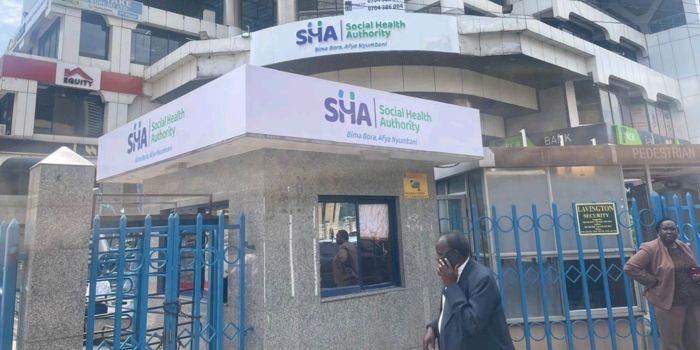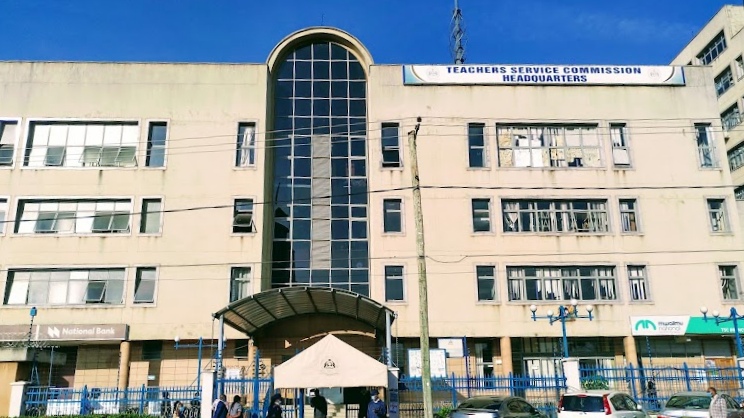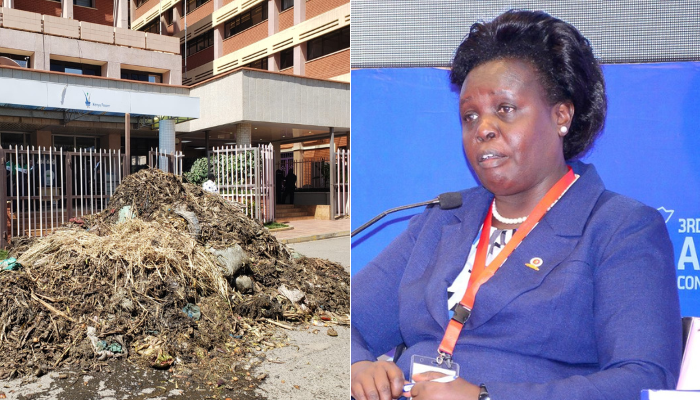The Kenya Association of Private Hospitals (KAPH) has suspended all credit arrangements under the Social Health Authority (SHA) insurance scheme and Medical Administrator Kenya Limited (MAKL) indefinitely.
In a statement on Monday, February 24, KAPH said the decision, made during a special general meeting on Monday takes effect immediately.
KAPH expressed concern over financial instability caused by unresolved inefficiencies in the NHIF-SHA transition and an unclear operational and reimbursement framework for outpatient services among other issues.
"This decision comes in response to persistent financial instability that has placed the quality, accessibility, and sustainability of healthcare services at grave risk due to unresolved inefficiencies in the NHIF-SHA transition, an unclear operational and reimbursement framework for outpatient services, outstanding NHIF arrears amounting to Ksh 30 billion and long-standing unpaid claims under MAKL," the statement read.
According to KAPH, months of unsuccessful negotiations with government authorities and MAKL, coupled with repeated unfulfilled promises, have pushed private healthcare providers to the brink.
Read More
The association warns that the situation threatens the survival of private hospitals, which serve over 52% of the population.
"This is not a decision we have taken lightly. It follows months of unsuccessful negotiations with government authorities and MAKL repeated unfulfilled promises, and an increasing financial burden that is now threatening the very survival of private healthcare facilities across Kenya.
"Private hospitals provide critical healthcare services to over 52% of the population, and without urgent intervention, their ability to deliver essential care is now in jeopardy," the statement added.

KAPH also highlighted that the crisis undermines Kenya’s commitment to achieving Universal Health Coverage (UHC) and weakens key pillars of the World Health Organization’s (WHO) healthcare framework.
"The ongoing financial strain on hospitals has already triggered mass job losses in the healthcare sector, delays in salary payments for medical professionals and staff, severe shortages of essential medical supplies and loan defaults and financial distress among private facilities.
"This crisis does not just impact hospitals, it undermines the national healthcare system and threatens Kenya’s commitment to achieving Sustainable Development Goal (SDG) 3.8 (Universal Health Coverage - UHC). Furthermore, it weakens the World Health Organization’s (WHO) six core healthcare pillars particularly service delivery, health workforce, health information systems, access to essential medicines and supplies, and healthcare financing," the statement further read.
In a call for urgent intervention, KAPH Chairman Erick Musyima emphasized the need for immediate action to prevent the collapse of private healthcare.
"KAPH is ready and willing to enter into meaningful discussions with the relevant authorities to urgently address these systemic failures to prevent the further deterioration of healthcare services in Kenya.
"The sustainability of private hospitals and the health and well-being of millions of Kenyans depend on immediate action," the statement concluded.
This comes barely a week after the Rural & Urban Private Hospitals Association of Kenya (RUPHA) announced plans to suspend SHA services in their facilities over pending NHIF debt.
At a press conference on Thursday, February 20, the association revealed that the suspension would take effect from Monday, February 24.
RUPHA lamented that the government was yet to pay over Ksh 30 billion NHIF debt despite past promises.
The association added that it was forced to take the decision following failed engagements with the government on the pending bills.
"As healthcare professionals, our first duty is the welfare of our patients. However, the continued failure to address critical challenges in the SHA transition is now directly endangering the quality and sustainability of care in our hospitals.
"This decision has not been made lightly. It follows months of failed engagements, unfulfilled promises, and growing financial distress among hospitals, which now threatens the very survival of healthcare institutions across Kenya," the statement read in part.





